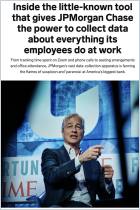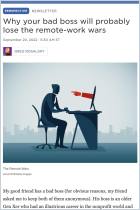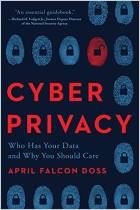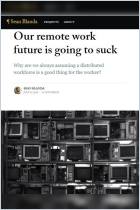
Read or listen offline
Amazon KindleRecommendation
Companies’ use of surveillance technology accompanied the shift to remote work. More than half of employers now monitor such performance indicators as computer keystrokes or facial expressions. You may not know if, how, or when your boss is watching you. State laws vary, and if firms disclose that they surveil, that disclosure could be just a footnote in an employee manual. In this sober edition of the Fast Company podcast “The New Way We Work,” deputy editor Kathleen Davis interviews surveillance expert Albert Fox Cahn about the rapid implementation of surveillance tools, now outstripping regulatory privacy measures. This could suggest not one big Big Brother but myriad little Big Brothers in the private sector. All employees, would-be employees, and those managing a far-flung workforce need to understand these issues.
Summary
About the Podcast
Kathleen Davis, a supervising podcast editor at Fast Company, interviewed Albert Fox Cahn, founder and executive director of the Surveillance Technology Oversight Project (STOP) and a fellow at Yale Law School and the Harvard Kennedy School.






















Comment on this summary